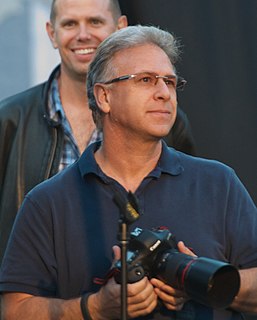A Quote by Van Jones
Too often we think about the green economy as an elite market niche, one in which affluent people spend more money to consume greener and cleaner products.
Related Quotes
When I say the economy is shrinking, it's the economy of the 99%, the people who have to work for a living and depend on earning money for what they can spend. The 1% makes its money basically by lending out their money to the 99%, on charging interest and speculating. So the stock market's doubled, the bond market's gone way up, and the 1% are earning more money than ever before, but the 99% are not. They're having to pay the 1%.
To change our national economic story from one of financial speculation to one of future growth, we need a third industrial revolution: a green revolution. It will transform our economy as surely as the shift from iron to steel, from steam to oil. It will lead us toward a low-carbon future, with cleaner energy and greener growth. With an economy that is built to last - on more sustainable, more stable foundations
We're now moving into a stage where the green economy isn't just going to be the place for people to spend money. It's going to become a place where a lot more people can earn money, and also save more money. These kind of solutions require collective action and government action. So as an advocate for government change, even somebody like me gets to have a role.
So, what people are actually left with to spend is maybe 25 to 30% of their income on goods and services, after paying taxes and after paying the FIRE sector (Finance, Insurance, Real Estate). Whether it's housing insurance or mortgage insurance. So there's an idea of distracting people. Don't think of your condition. Think of how the overall economy is doing. But don't think of the economy as an overall unit. Think of the stock market as the economy. Think of the rich people as the economy. Look at the yachts that are made. Somebody's living a lot better. Couldn't it be you?
The best way to encourage economic vitality and growth is to let people keep their own money.When you spend your own money, somebody's got to manufacture that which you're spending it on. You see, more money in the private sector circulating makes it more likely that our economy will grow. And, incredibly enough, some want to take away part of those tax cuts. They've been reading the wrong textbook. You don't raise somebody's taxes in the middle of a recession. You trust people with their own money. And, by the way, that money isn't the government's money; it's the people's money.
Today it's fashionable to talk about the New Economy, or the Information Economy, or the Knowledge Economy. But when I think about the imperatives of this market, I view today's economy as the Value Economy. Adding value has become more than just a sound business principle; it is both the common denominator and the competitive edge.
I was not part of the golden age of the record industry, when musicians and producers were making real money. So I have no nostalgia about that time and I enjoy trying to build a new economy, a more humble one. And since I expect to sell only niche music, I feel quite solid, in this little economy. I know we will not become rich with this, but this is not the goal.




































